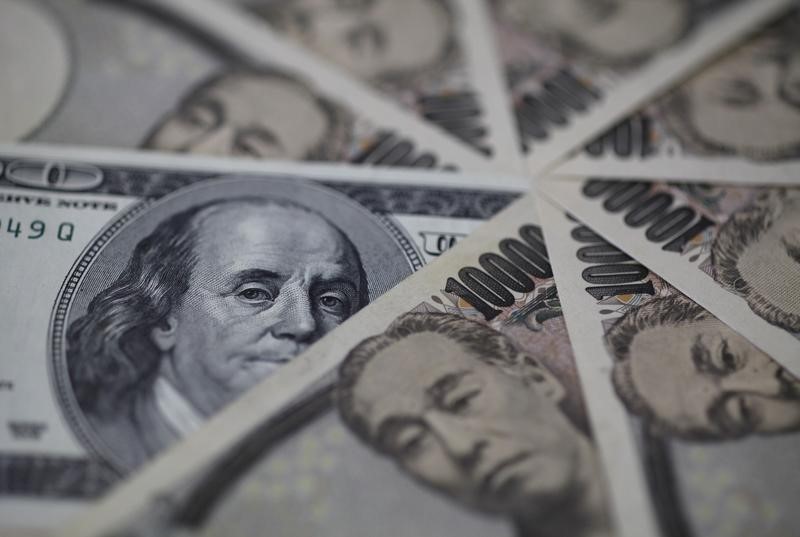Bitcoin price today: gains to $120k, near record high on U.S. regulatory cheer
Investing.com-- Most Asian currencies traded slightly higher on Thursday as the dollar remained weak amid worries over piling U.S. debt, while investors awaited a crucial full floor vote over President Donald Trump’s tax cut bill later in the day.
Markets were cautious because the proposed bill, if passed, would further increase U.S. government spending and widen the fiscal deficit.
The US Dollar Index, which measures the greenback against a basket of major currencies, edged down 0.1%, falling for the fourth consecutive session.
Dollar weak amid fiscal concerns; vote on Trump’s tax cut bill looms
This downturn follows Moody’s recent downgrade of the U.S. sovereign credit rating from "Aaa" to "Aa1", citing escalating debt levels.
Concurrently, the U.S. House of Representatives was poised to vote on President Donald Trump’s proposed tax cut bill on Thursday. The legislation aims to extend the 2017 tax cuts and introduce new tax breaks.
However, critics argue that the bill could add between $3 trillion to $5 trillion to the national debt over the next decade, exacerbating fiscal deficits.
Investors are also closely monitoring the G7 finance ministers’ meeting in Canada, where discussions are expected to address global economic stability and currency market volatility.
Asia FX ticks up; markets eye currency agreements
“US Treasury Secretary Scott Bessent is set to hold several bilateral meetings in the coming days, and markets will be watching closely for any signals that currency agreements are on the table,” ING analysts said in a note
U.S. Treasury Secretary Scott Bessent and Japan’s Finance Minister Katsunobu Kato agreed Wednesday that the dollar-yen exchange rate reflects current fundamentals, the U.S. Treasury said on Wednesday.
The Japanese yen’s USD/JPY pair fell 0.4%.
Meanwhile, the South Korean won weakened, bucking the regional trend, with its USD/KRW pair rising 0.5%.
The won gained sharply in the previous session after media reports showed that the U.S. had demanded that Seoul come up with measures to boost the won.
Elsewhere, the Chinese yuan’s offshore USD/CNH and the onshore USD/CNY pairs were largely muted.
The Australian dollar’s AUD/USD pair was also unchanged.
The Singapore dollar’s USD/SGD pair edged down 0.1%, while the Indian rupee’s USD/INR pair also ticked down 0.1%.
